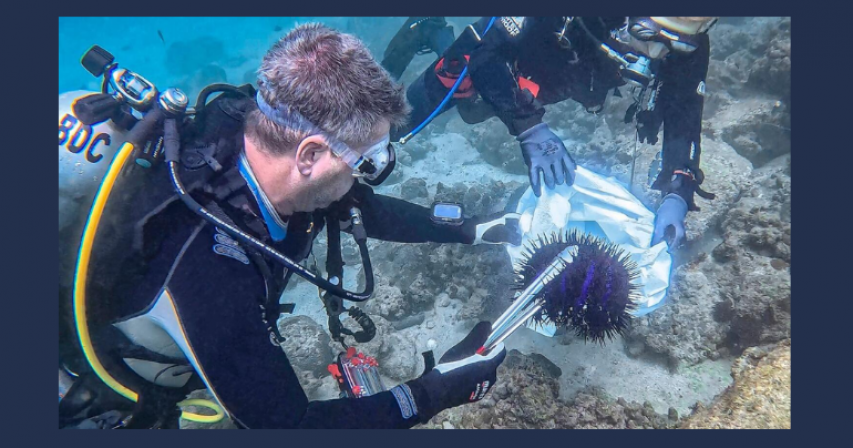Divers cull CoTS outbreak at two coral reef sites

In an effort to protect the delicate coral reefs off the coast of Khor Fakkan, UAE divers have undertaken a crucial operation to cull a crown-of-thorns sea stars (CoTS) outbreak. This outbreak posed a significant threat to the marine ecosystem, as CoTS are known to be voracious predators capable of devastating coral reefs if left unchecked.
Coral reefs are not only diverse and vibrant ecosystems but also provide essential habitats for marine life and offer crucial services to coastal communities. However, these ecosystems face numerous threats, including climate change, pollution, and overfishing. Among these threats, the CoTS outbreak demanded immediate attention due to its potential to cause extensive coral mortality and habitat degradation.
CoTS, characterized by their numerous venomous spines and ability to consume large amounts of coral tissue, can play a natural role in reef ecosystems by controlling coral growth. However, outbreaks of these sea stars can lead to severe consequences for coral reefs. An adult CoTS has the capacity to devour approximately 10 square meters of coral annually, making it imperative to manage their population to ensure the health of coral reefs.
Led by Dr. Henrik Stahl, Dean of the College of Marine Science and Aquatic Biology at the University of Khorfakkan, the culling initiative aimed to reduce the population of CoTS across two coral reef sites: Martini Bay and Hole-in-the-Wall. Extensive surveys revealed alarming findings, with 70 CoTS observed over an area of 2,250 square meters at Martini Bay and 16 over 2,550 square meters at Hole-in-The-Wall.
The initiative was a collaborative effort involving marine biologists, volunteers, and organizations such as the Emirates Diving Association (EDA) and DP World. Community engagement played a crucial role in identifying and addressing the CoTS outbreak, highlighting the importance of scientific research and collective action in safeguarding coral reef ecosystems.
Ibrahim Al Zu’bi, co-founder of the EDA, emphasized the significance of partnerships in protecting the UAE's ocean environment. Collaborations with institutions like the University of Khor Fakkan and volunteer groups such as the Dubai Voluntary Dive Team are essential in achieving the mission of preserving marine biodiversity and ecosystem health.
Through proactive measures like culling operations and community engagement, stakeholders aim to mitigate the impact of CoTS outbreaks and ensure the long-term sustainability of coral reefs in the UAE. By addressing immediate threats and promoting conservation efforts, they strive to preserve these invaluable marine ecosystems for future generations.
By: Sahiba Suri





Comments